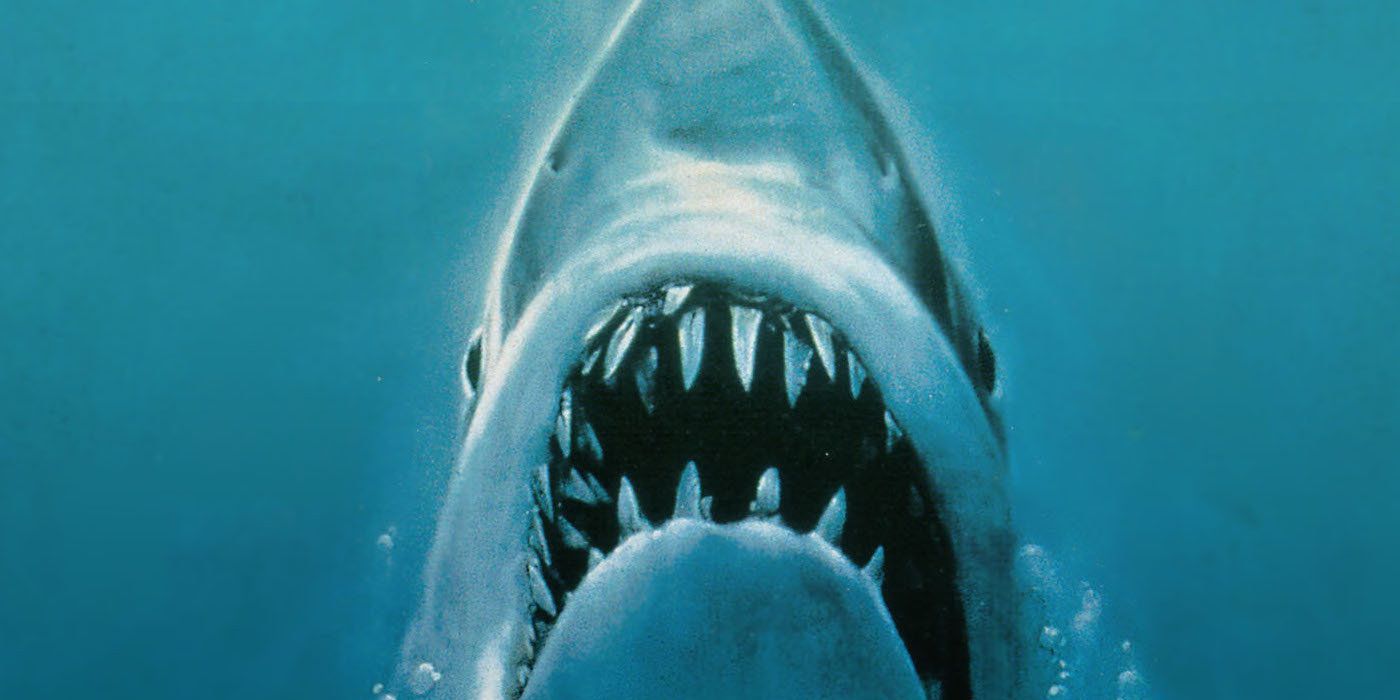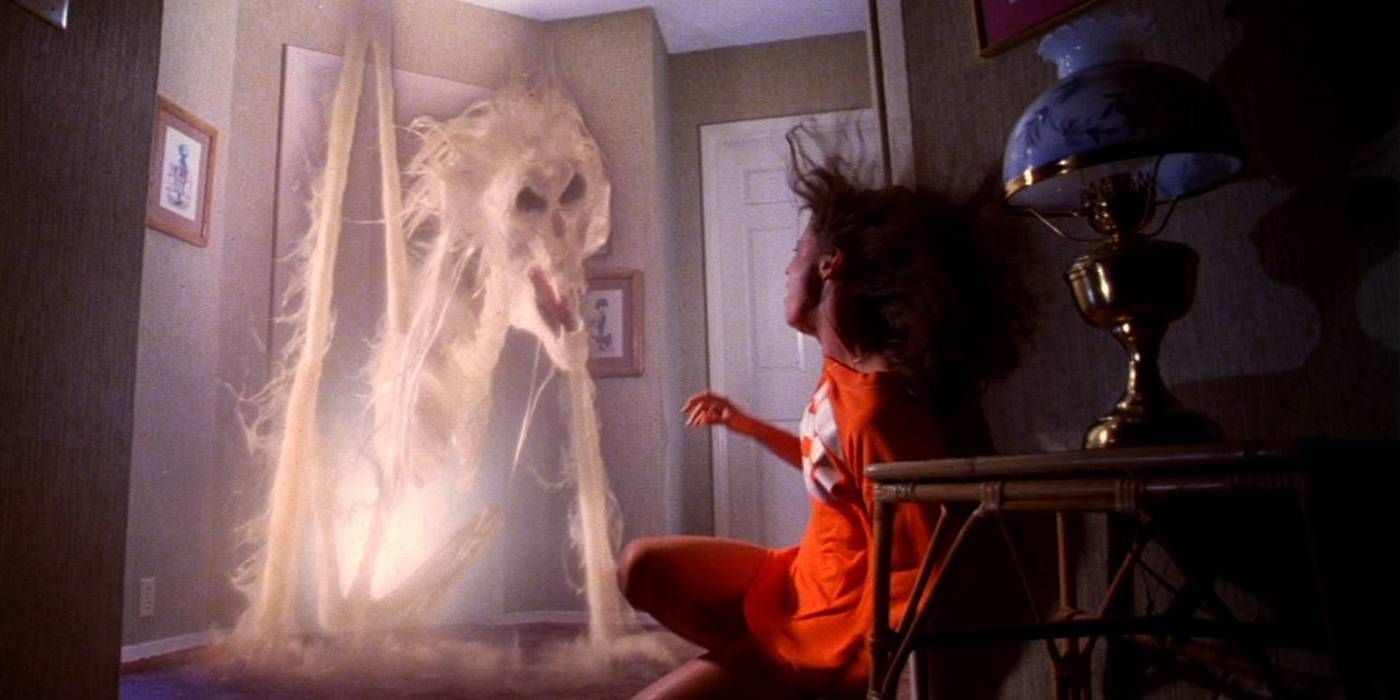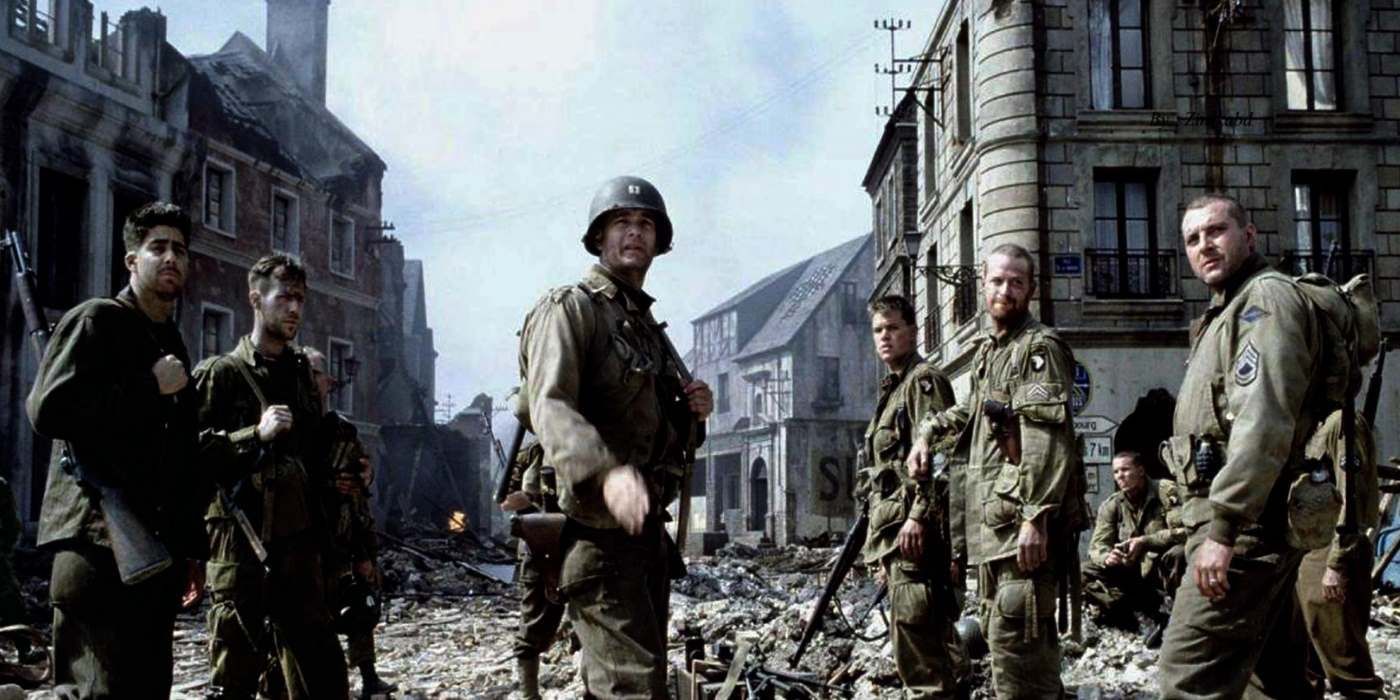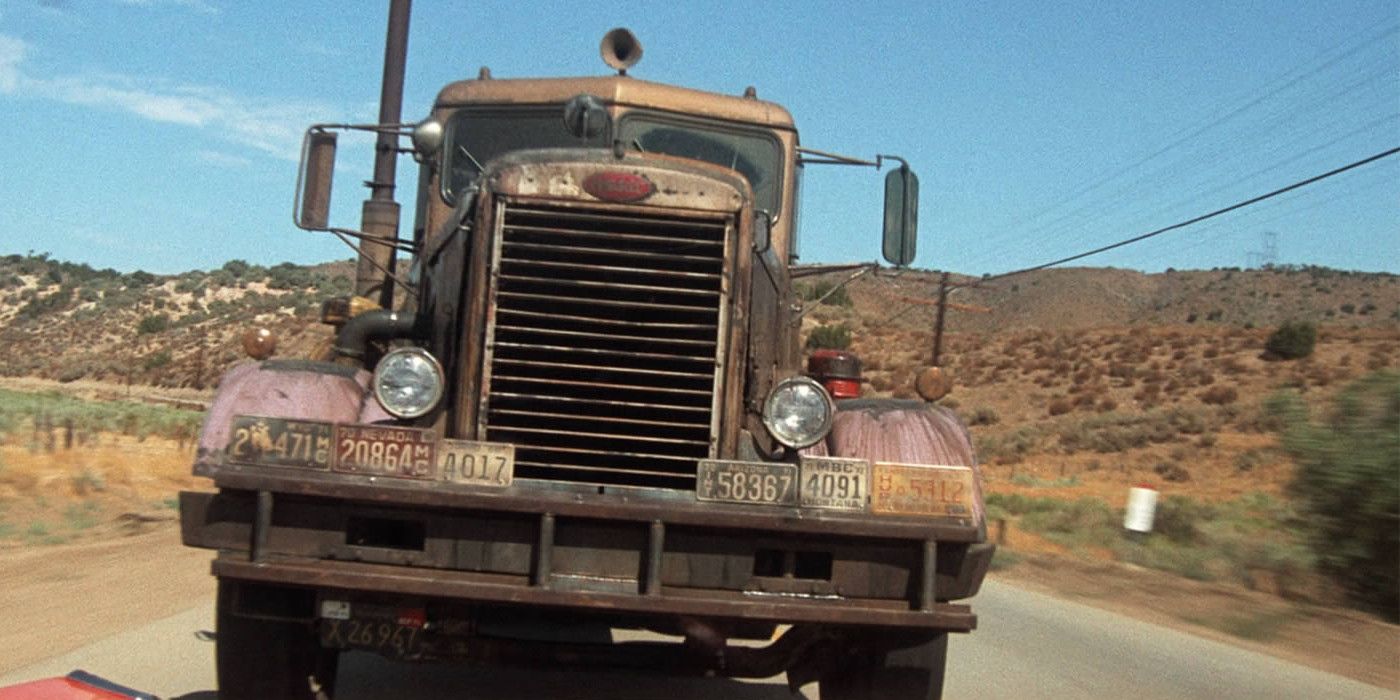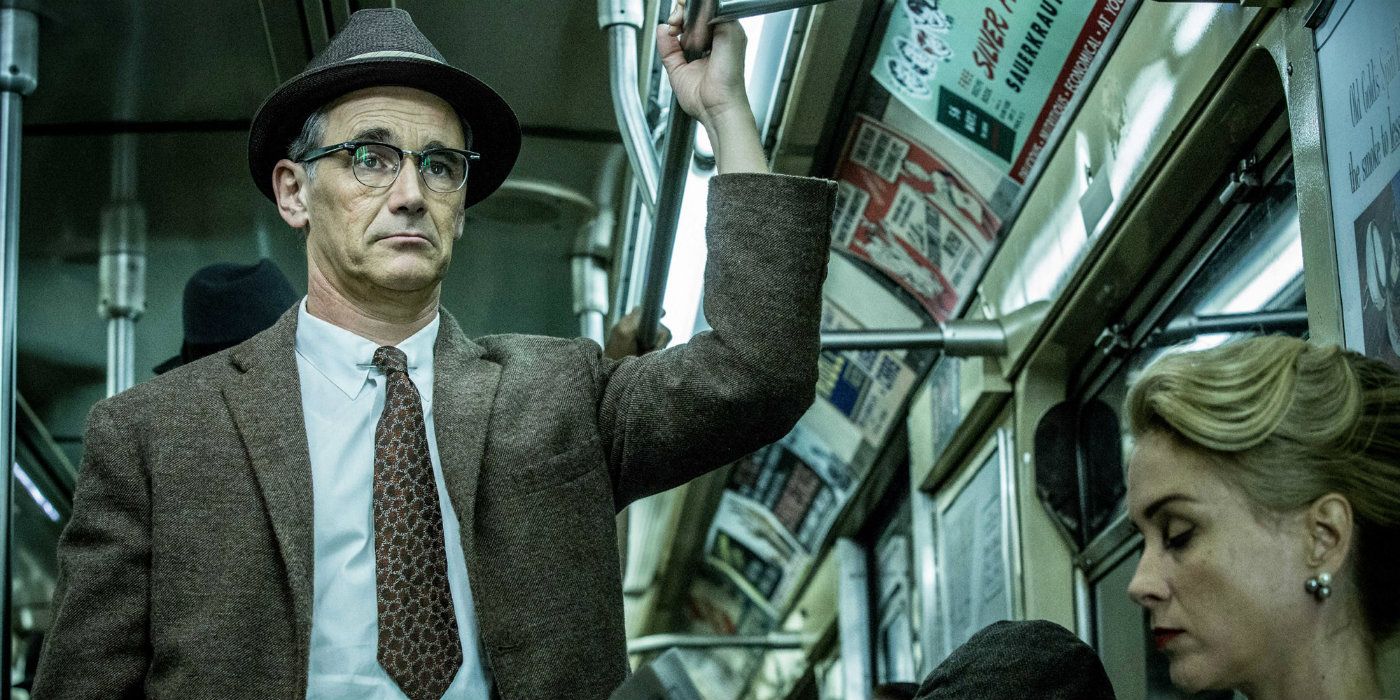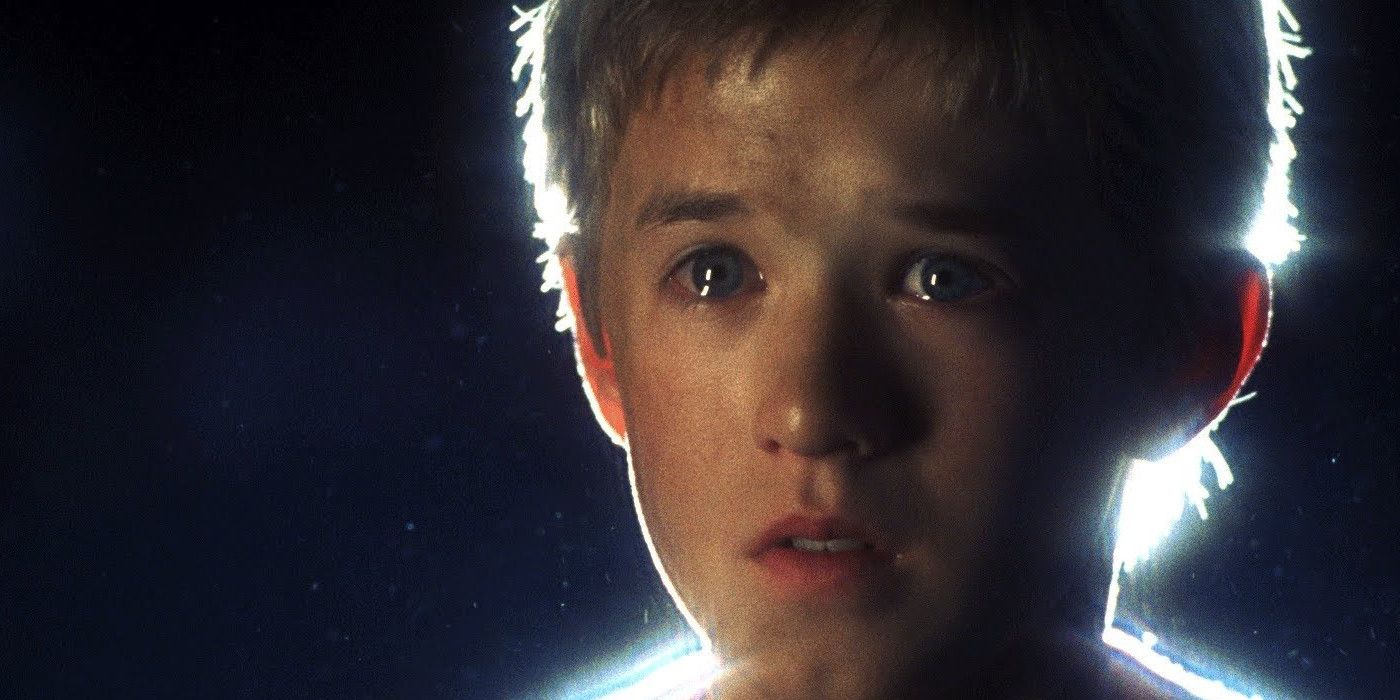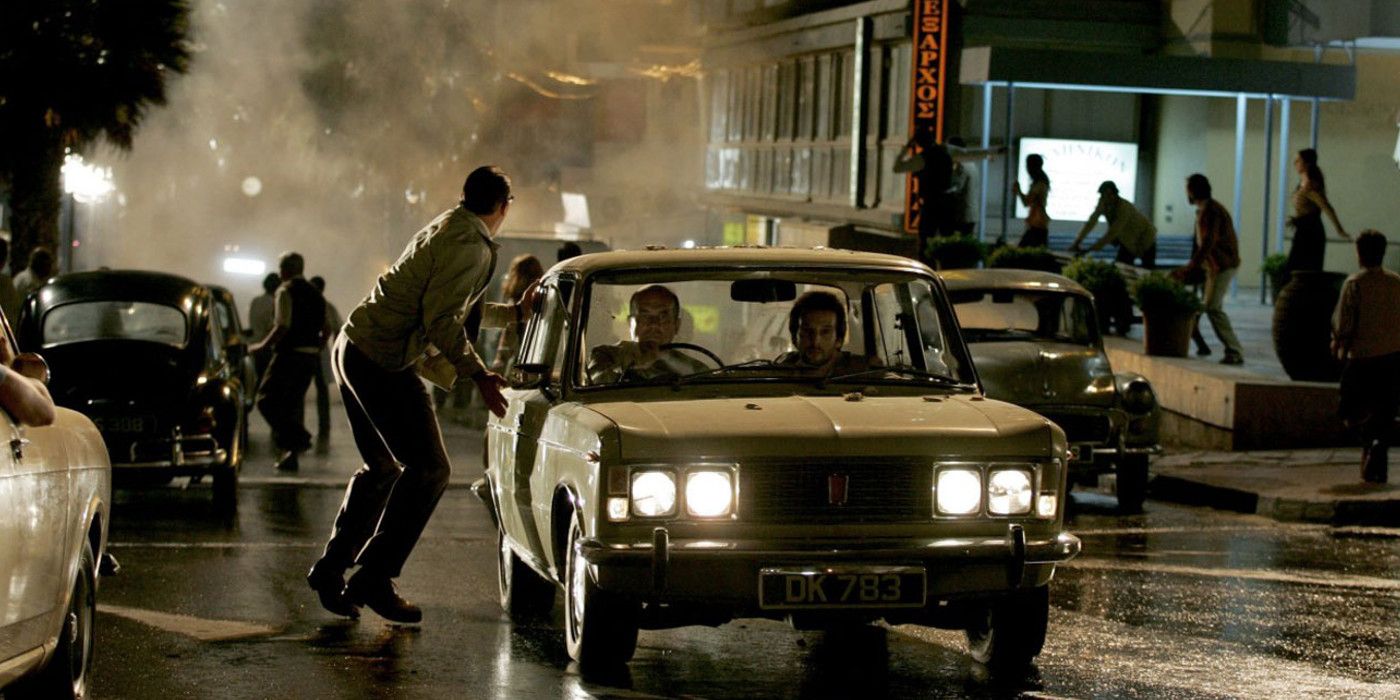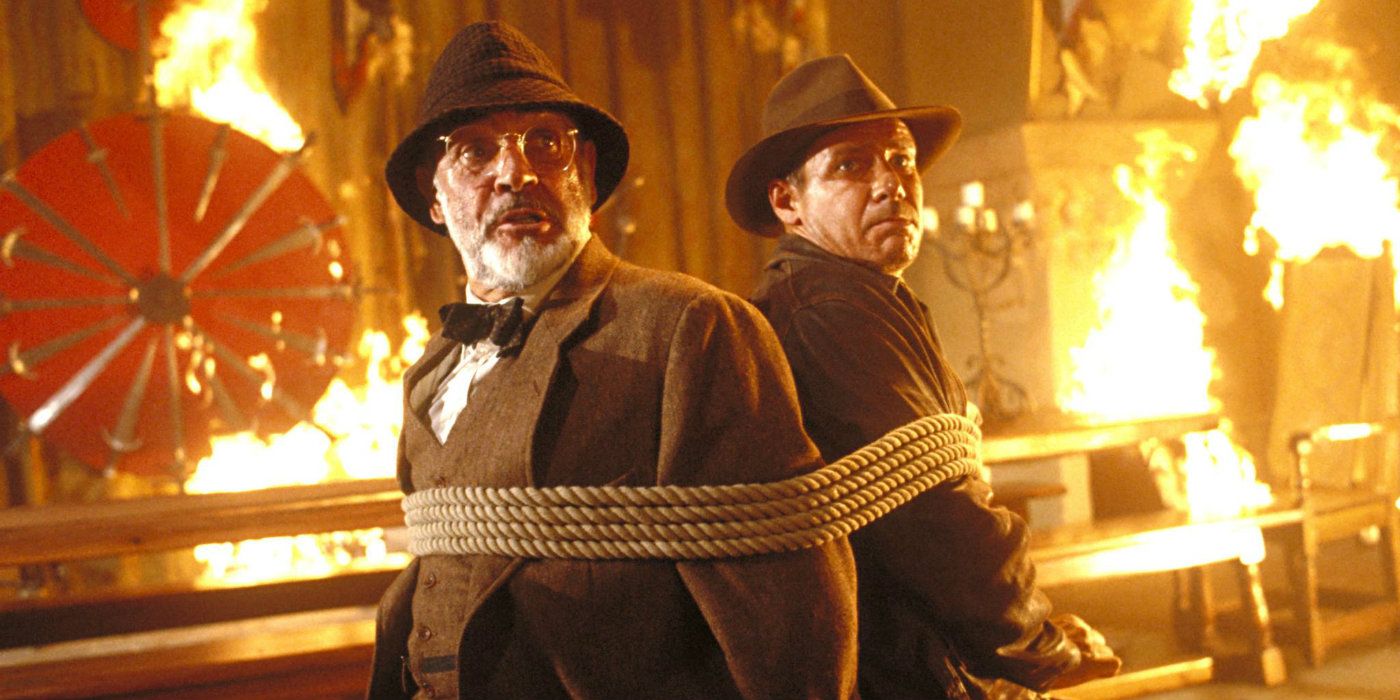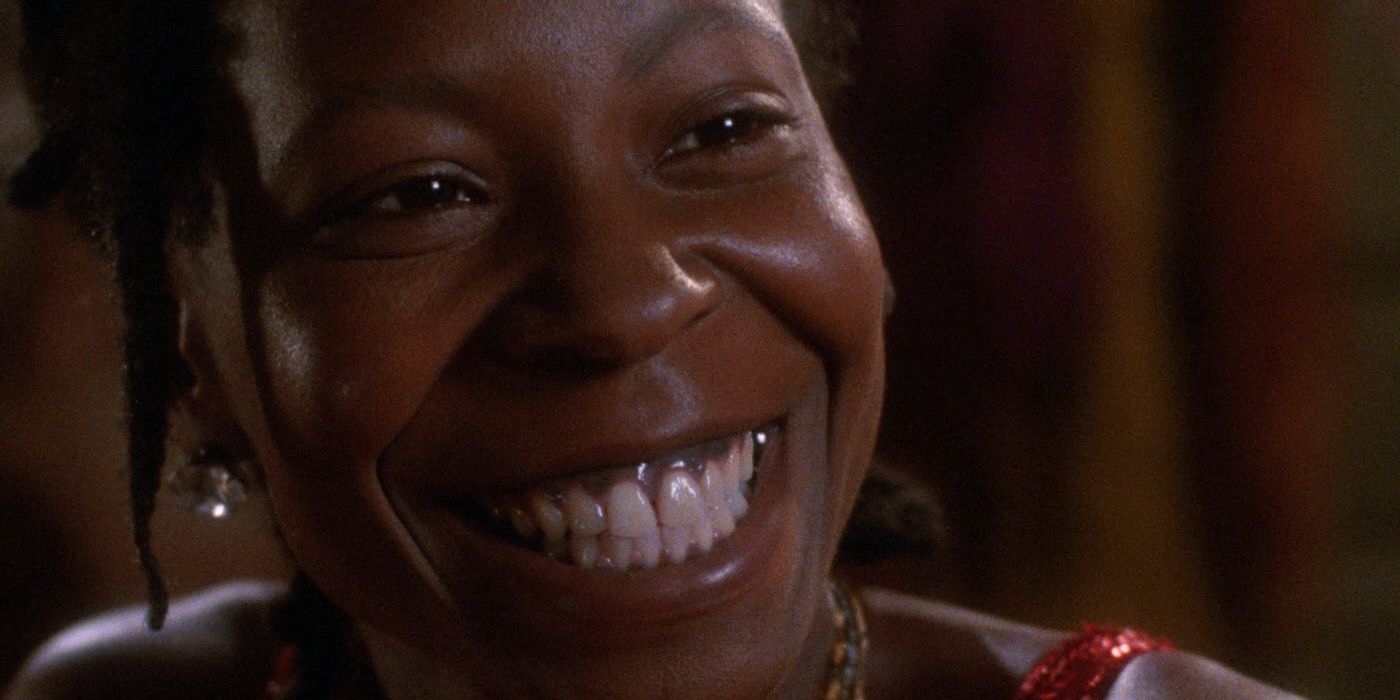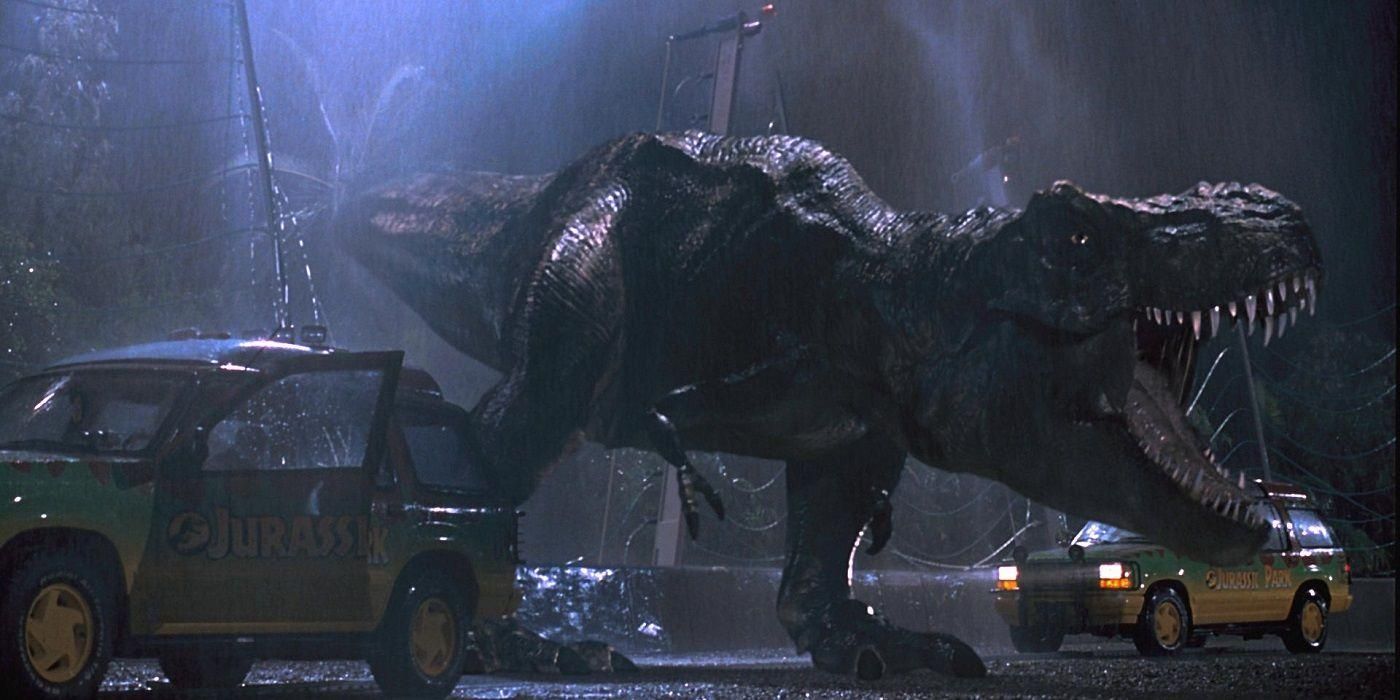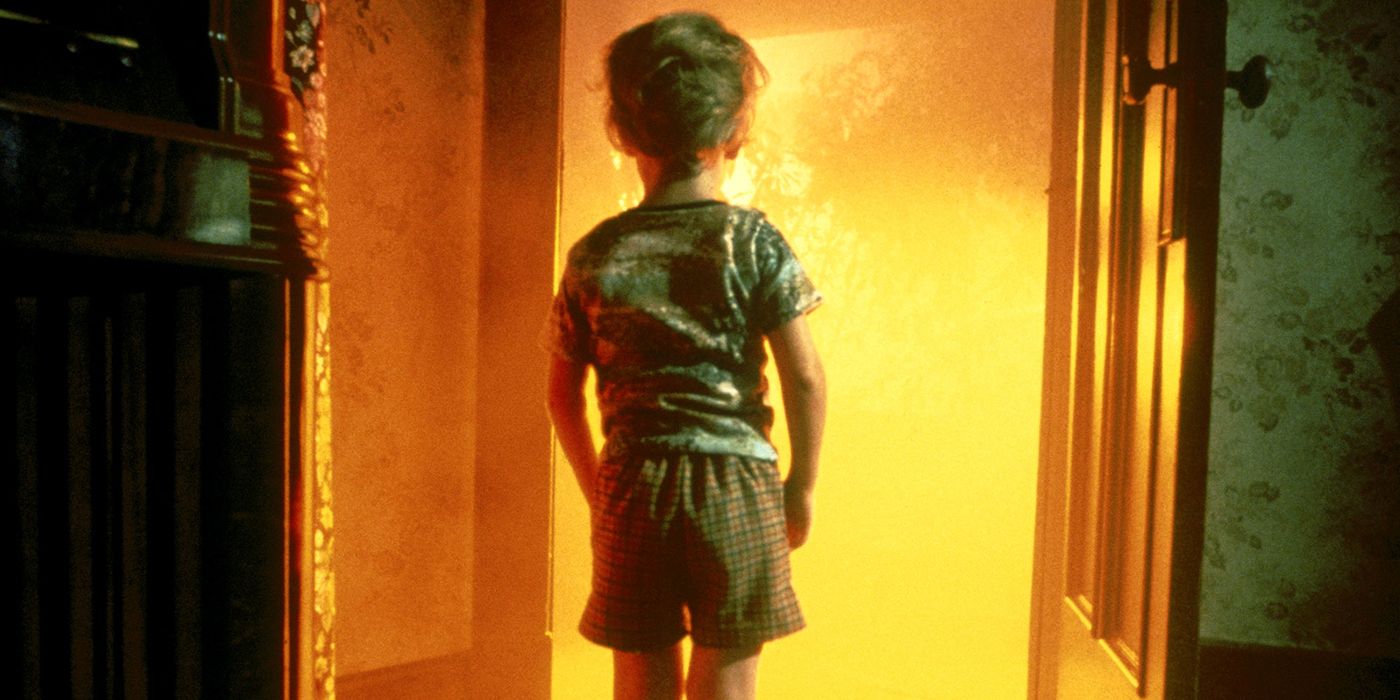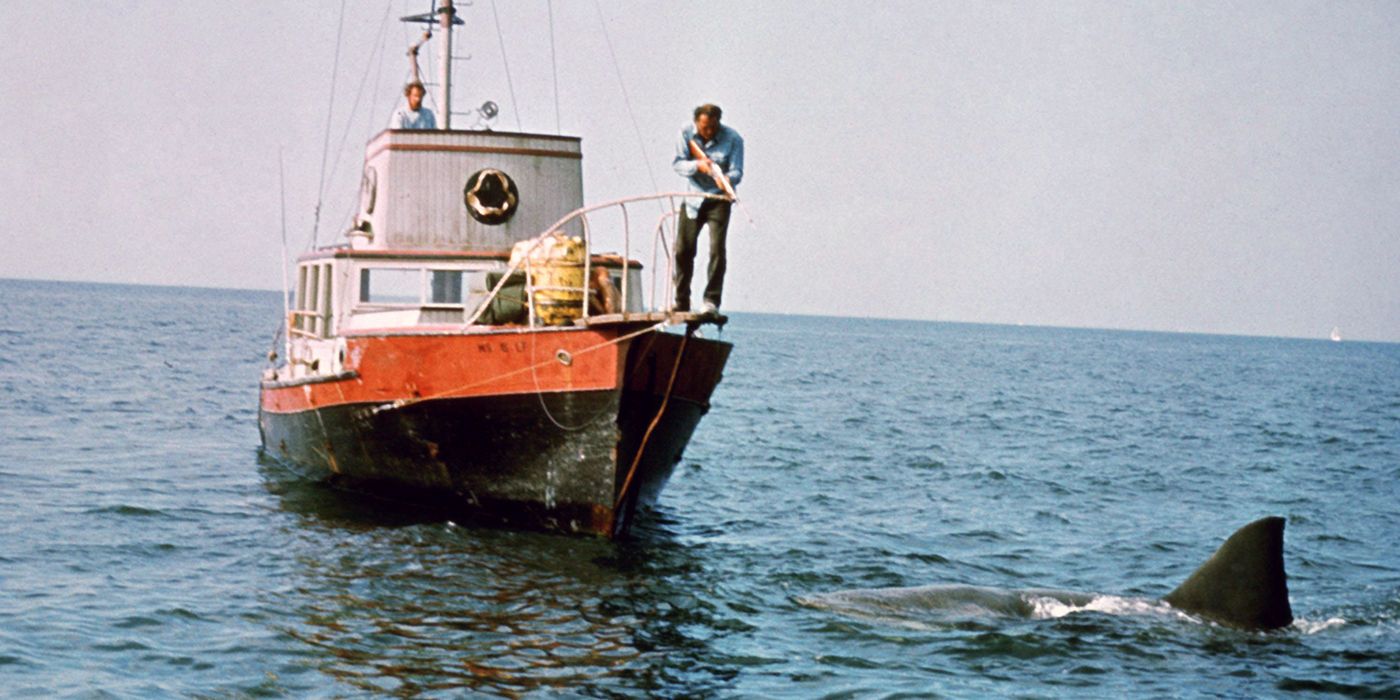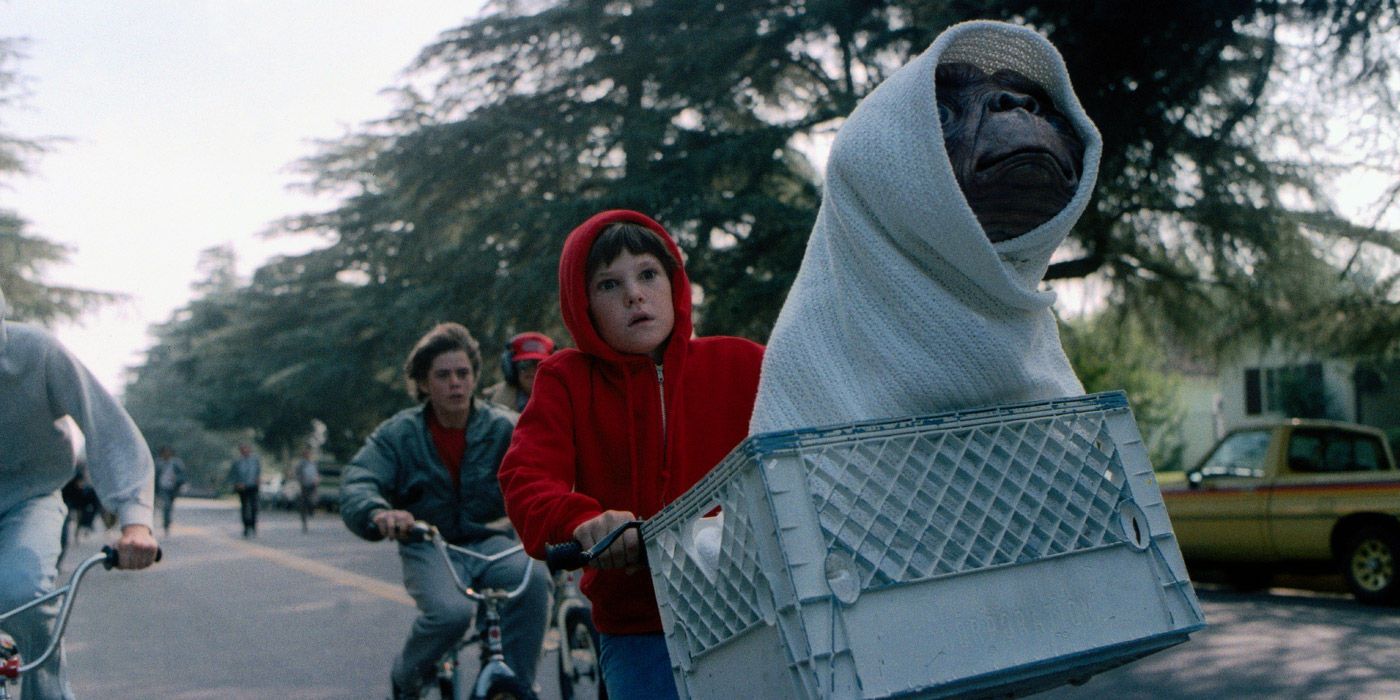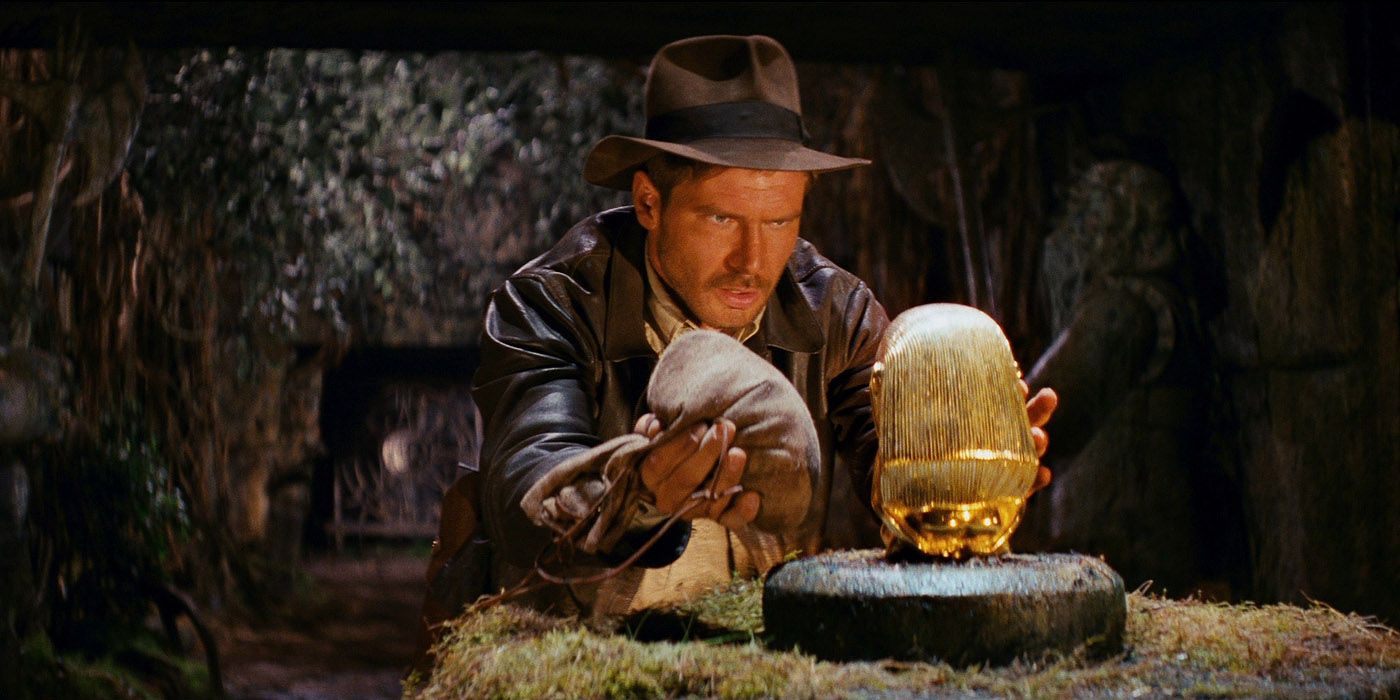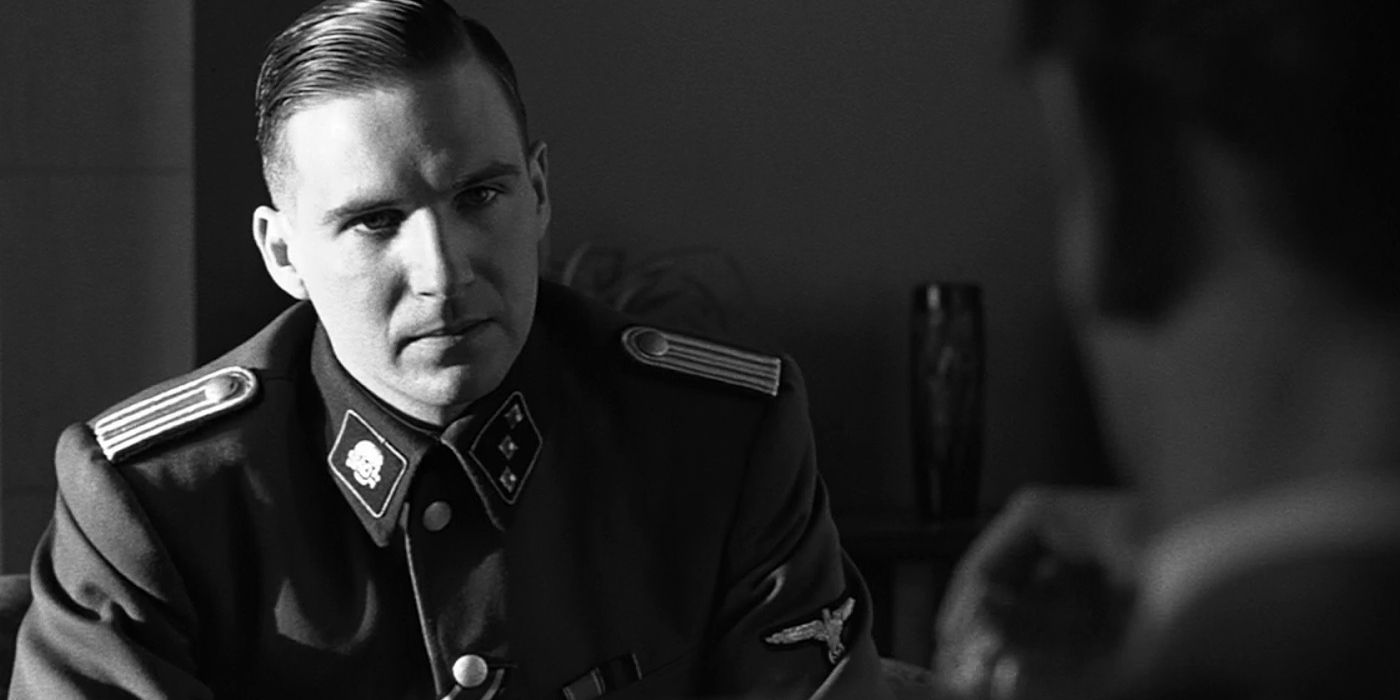Few names tower over filmmaking like Steven Spielberg. Without question, the director has earned the title of Most Successful Director ever, both in terms of artistic and commercial recognition. Though he had a recent setback with the flop The BFG, one commercial disappointment can’t overshadow a career of record-breaking ticket sales. For the serious cinephile, however, dissecting Spielberg’s filmography can be a bit daunting. With so many great films to his name, where to begin?
For one thing, not every Spielberg film is a masterpiece. For that matter, not every one of his movies is even good (sorry, Hook fans). With only so many viewing hours in a day, and so many movies to revisit, keeping a Spielberg film fest to the essentials makes screenings far easier on the eyes, not to mention the ass. And that’s why we’re here. We here at ScreenRant have assembled this list of the need-to-watch movies from the Spielberg directorial filmography. Varied and always interesting, these fifteen films will engage audiences with their expert craftsmanship. Some even qualify as masterpieces—some of the best movies ever made.
Submitted for total viewing pleasure, then, check out the 15 Essential Spielberg Movies!
15. Poltergeist
Though Tobe Hooper gets credit for this suburban night terror masterpiece, testimony from key production staff and studio paperwork suggest that Spielberg made most of the creative choices on the film. He storyboarded every scene, wrote the script, cast every role and oversaw the final edit. The late Zelda Rubenstein, who plays the psychic Tangina in the film, always claimed Spielberg had directed all of her scenes, a sentiment echoed by producer Frank Marshall.
So why didn’t Spielberg take on-screen credit? Two letters: ET. Spielberg had already begun production on that film, and a clause in his contract stipulated that he couldn’t work on any other movie at the same time. Therefore, he hired Hooper to direct Poltergeist while Spielberg would offer a lot of “creative input.” In fact, the Director’s Guild opened an inquiry into the matter, which prompted Spielberg to write an open letter to Hoper in Variety essentially absolving himself of any credit. Though the DGA ruled to credit Hooper for direction, history will likely remember Spielberg as the guy in charge on this, one of his best films.
14. Saving Private Ryan
Spielberg delivered possibly the best World War II film ever with this mammoth production. Despite an elephantine runtime and the dark subject matter, Saving Private Ryan became a massive hit in 1998, doing over $216 million in the US alone and racking up eleven Oscar nominations. Spielberg also took home his second Best Director statuette.
With a massive cast that includes Tom Hanks, Tom Siezmore, Matt Damon, Ted Danson, Bryan Cranston, Paul Giamatti and Vin Diesel, Saving Private Ryan told the story of an Army squad tasked with recovering the titular character from the front. Besides getting remarkable performances from his actors, Spielberg also showed off his action skill, recreating the invasion of Normandy on Omaha Beach.
Though rarely credited, Saving Private Ryan had a powerful impact on the popular consciousness, particularly in the United States. The film's powerful scenes helped spark a renewed interest in the sacrifices of soldiers during World War II that has held to this day.
13. Duel
The telefilm Duel in many ways predicted Spielberg’s career trajectory throughout the 1970s and into the 1980s. A creepy thriller about a man stalked by a tanker truck, Duel benefited from a screenplay by sci-fi legend Richard Matheson, and from the charisma of noted character actor Dennis Weaver. Spielberg cast Weaver in the lead role after seeing his work in Orson Welles’ Touch of Evil, a film which the director cites as a major influence on his own work.
Duel debuted to rave reviews, with many viewers noting that, despite featuring no gore, the movie was utterly terrifying. Spielberg would go on to use many of the camera angles and techniques in his thriller Jaws to similar effect. Often regarded as one of the best TV movies ever, Duel has become something of a cult film thanks to Spielberg’s later success. In an unusual move, Universal released the movie on DVD and Blu-Ray, further attesting its popularity.
12. Bridge of Spies
Spielberg took on the Cold War, reuniting with Tom Hanks for this political thriller. Mark Rylance won an Academy Award for his performance as Rudolf Abel, a Soviet spy operating in New York. Abel stands trial for espionage, as Hanks’ James Donovan attempts to defend him in court. Throughout the trial, the two men form an unlikely friendship, which allows them both to see beyond the fog of the Cold War.
Bridge of Spies examines both the Cold War tensions abroad, and the hysteria the McCarthy Red Scare ignited in the US. Donovan repeatedly has his life threatened for taking on Abel’s defense, while negotiations with the Soviet and East German governments for Abel’s release play like a twisted poker game. Though it all, both Abel and Donovan begin to wonder: just what is everyone fighting about in the first place?
Much as he did in Munich, Spielberg takes on questions with frustrating answers. Bridge of Spies may not have the visceral power of some of the director’s more personal works, but nevertheless, it is one of his best films.
11. AI: Artificial Intelligence.
Few of Spielberg’s films have divided audiences like AI: Artificial Intelligence. A collaboration between Spielberg and the late Stanley Kubrick, the film benefits from extravagant design and breathtaking special effects. It also sports a brilliant turn from Haley Joel Osment as David, a robot designed to imitate a child. Like Pinocchio, David wants to become a real boy, so he can stay with his human family. His desire to become real leads him on a strange and perilous journey through the world of the future and beyond.
Critics and audiences alike praised AI’s ambition and execution, though exactly what the movie was saying—particularly in the last 10 minutes—proved confounding. 15 years after the movie hit screens, it continues to elicit heated reactions from fans and detractors alike. AI offers a memorable experience at the movies, and a director at the height of his ambition. Masterpiece or not, it’s a hell of a movie.
10. Munich
The Israeli-Palestinian conflict has made headlines for the better part of a century, and Steven Spielberg found a way to encapsulate the madness of it all. His film Munich revisits the Olympic Massacre of 1972—a footnote in most history books, but a pivotal moment in Israel's history conflict. Eric Bana stars as Yuval Kaufman, a Mossad agent charged with assassinating the members of Black September, the Palestinian group responsible for the Munich Massacre.
The politics and capers take a back seat to a much darker subject, however: the dehumanization of violence. As Kaufman and his fellow assassins go about exacting revenge, he begins to lose touch with the ideals and patriotism that prompted him to join Mossad in the first place. When he returns from his mission suffering from post traumatic stress, Kaufman resigns from Mossad, realizing that violence only births more violence. That Spielberg selected the World Trade Center as the final image of the film is a testament to his boldness.
9. Indiana Jones and the Last Crusade
Sorry, Temple of Doom fans! Of all Indy’s post-Raiders adventures, this film comes closest to the magic of the original. Indiana Jones and the Last Crusade finds Indy edging toward middle age, as Nazis kidnap his father in their quest to find the Holy Grail. This third installment in the series reunites favorite supporting characters like Marcus Brody and Sallah with Indy and Henry Jones, Sr., well played by Sean Connery. It also features some of the series most impressive stunts and effects, including a speedboat chase in Venice.
When viewed as a personal statement—witting or otherwise—on the part of Spielberg and Indy’s co-creator George Lucas, The Last Crusade takes on an odd level of meta-commentary. Both Spielberg and Lucas had tense relationships with their fathers, much like Indy. Both also reconciled with their dads after finding success in Hollywood. The choice of the Holy Grail as MacGuffin is also telling: the men who brought youthful adventures like the Indiana Jones and Star Wars series can’t remain young forever, no matter how hard they try.
8. Lincoln
Steven Spielberg continued his audition for history professor with his epic Lincoln, a movie he worked on for more than ten years. Despite having Sally Field and Liam Neeson attached to star, and using the man widely acclaimed as the Greatest US President as the subject, no studio would fund it. Spielberg finally got the film into production thanks to multi-studio funding and by replacing Neeson with Daniel Day-Lewis. The director would have replaced Field too, had she not plead to keep the role of Mary Todd Lincoln, and had Day-Lewis not lobbied for her.
Lincoln follows Abraham Lincoln’s struggle to pass the Thirteenth Amendment in the midst of the Civil War. With a script by Pulitzer Prize winner Tony Kushner, the film managed to also feature the Gettysburg Address and Lincoln’s assassination, though in inventive and unexpected ways. Sally Field and Tommy Lee Jones deliver some outstanding work and Daniel Day-Lewis, in the title role, gives his best ever performance. Given the actor’s resume, that says a lot, though it should come as no surprise given the director at the helm.
7. The Color Purple
Hollywood insiders raised more than one eyebrow at the announcement that Spielberg would direct the film adaptation of Alice Walker’s bestseller, The Color Purple. Hired at the insistence of producer Quincy Jones, Spielberg hesitated to direct the film, fearing that he wasn’t suited to the material. After meeting with Walker, he agreed, and made a powerful masterpiece of a movie.
The Color Purple benefits from Walker’s astonishing writing, as well as a talented cast that included Danny Glover, Margret Avery and in their first film roles, Oprah Winfrey and Whoopi Goldberg. A story of rape, abuse, love and redemption, the film packs an emotional wallop like few others. As Goldberg’s tiny frame rises up to curse her abusive husband, the screen seems like it might burst into flames. That she did not win the Best Actress Oscar will be an indignity that will forever mar the Academy.
Spielberg later faulted himself—rightly—for not portraying a lesbian relationship between two characters with more frankness. Still, his trepidation does nothing to diminish the power of the film—one of his best, and a modern masterpiece.
6. Jurassic Park
Call it the last of Spielberg’s nerdy suburban kid films. Jurassic Park finds the director again at the height of his power in this adventure about dinosaurs run amok in a theme park. What easily could have crumbled into ridiculous dreck instead becomes ridiculous adventure, thanks to Spielberg’s craftsmanship. It also helps that the special effects magicians at ILM also created some incredible dinosaurs, thanks to groundbreaking computer animation.
Jurassic Park revisits a number of Spielberg’s trademarks—spunky kids, absent fathers and the power of science. It also bears a personal touch in the person of showman John Hammond, the engineer behind the titular theme park. As Hammond recounts his ambitions that led him to build the park—to do something meaningful for an audience—we suspect that Spielberg speaks through his character. Known as a commercial showman who often skimps on humanity in favor of spectacle, Spielberg knew Jurassic Park would mark the last of his earlier films, and that his next—Schindler’s List—would forever change the trajectory of his career.
5. Close Encounters of the Third Kind
Spielberg became Hollywood’s resident wunderkind nerd with this unusual film. Much like The Day the Earth Stood Still before and Contact after it, Close Encounters of the Third Kind postulated what a real meeting with aliens would look like. Spielberg weaves his usual themes of suburban life and absent fathers into this narrative of first contact, which netted Spielberg his first Best Director Oscar nomination.
Featuring groundbreaking special effects from Douglas Trumbull, the man who helped bring Stanley Kubrick’s 2001 to screens, Close Encounters became Spielberg’s first full-blown epic. Shot on location around the world, the director never the less made the film a personal, and intimate one, courtesy of a fantastic performance by Richard Dreyfus. Spielberg would also make one of the first ever “Special Edition” cuts with Close Encounters, which found the director filming new scenes with Dreyfus and adding in new effects two years after the film’s initial release. As personal and innovative as anything in Spielberg's filmography, Close Encounters is often regarded as one of the great science fiction films… because, quite simply, it is!
4. Jaws
The movie that launched Spielberg’s career as a blockbuster director and made a generation afraid to go in the ocean, Jaws exploded onto screens in 1975, forever changing the industry standards of success. Consider that the media coined the very term “blockbuster” to describe the audiences for Jaws, and you start to get the idea.
Everything about production was a disaster: the animatronic shark didn’t work, filming fell way behind schedule, and the movie ended up costing more than double the budget. Still, Spielberg found a way around every hurdle, using the delays to refine the script and work with his actors. The trouble with the shark prop too forced him to take a less-is-more approach, shooting scenes from its point of view, which ended up adding to the suspense. Spielberg would later claim he only realized the film would become a hit when he witnessed an audience member so disgusted and terrified that he ran into the theatre lobby to vomit, only to return for the rest of the film! Sleek, enthralling and scary as any horror movie, Jaws qualifies as Spielberg’s first true masterpiece.
3. ET: The Extra Terrestrial
Though often attacked—in the 70s and 80s, anyway—for making movies so commercial that they sacrificed their personal and human elements in favor of gloss, Spielberg indisputably made his most personal movie in 1982. ET: The Extra Terrestrial followed an alien stranded on Earth. A young boy suffering through his parents’ divorce befriends the wayward ET, and the two work together to get the alien home.
ET became one of the defining movies of the 1980s, integrating cultural trends of the time: divorce, suburbia, technology and precocious children. All of those qualities made the film personal for Spielberg however, and ET found the director connecting with his audience in a way he never had before. The movie would go on to snag nine Oscar nominations, and become the most successful film in history. Though the director originally planned a sequel to the film—and though the financial incentive to make one would be enormous—he has repeatedly opted to keep the movie as a stand alone piece. Spielberg realized the sacred status the movie holds for audiences, and likely shares the sentiment himself.
2. Raiders of the Lost Ark
Steven Spielberg and best bud George Lucas take a lot of criticism from certain cinephiles for some of their recent cinematic outings. Those detractors should show a bit more reverence: their first collaboration continues to spellbind audiences more than thirty years after its debut. Raiders of the Lost Ark raised the bar on movie adventures for all times. It helps, of course, that the movie created one of the all-time great characters in Indiana Jones, on par with James Bond, Sherlock Holmes or Scarlett O’Hara. It also helps that Harrison Ford embodies Indy as no other actor ever could, a mix of roughness, intelligence and sarcasm.
Raiders of the Lost Ark combines the best elements of Universal horror movies and Republic serials into a globetrotting adventure. Loaded with incredible vistas and some of the best action ever filmed, the movie touches every part of the imagination; not one element of the movie comes up short. A flawless mix of romance, intrigue, action and adventure, Raiders of the Lost Ark will continue to entrance audiences as long as humanity watches movies.
1. Schindler’s List
If Raiders of the Lost Ark shows how great a movie can be, Spielberg’s 1992 masterpiece shows just how great a movie can encapsulate the human spirit. Schindler’s List marked the beginning of the second phase of Spielberg’s career as a brooding artist. If Close Encounters proved his thoughtfulness, Raiders his skill as a craftsman, ET his tenderness and The Color Purple his social consciousness, Schindler’s List represents a culmination of everything Spielberg is as an artist, and as a person.
Spielberg has talked at length about his fears in tackling the Holocaust, and the extreme depression he suffered during filming. His passion paid off; Schindler’s List became a box office success, and won Spielberg his first Academy Award. Schindler’s List examines the horror of the Holocaust with stark grittiness, as if Spielberg himself opened Pandora’s Box and cataloged every evil inside. And, like Pandora, underneath it all he found wounded hope, that if one man could betray his political and business interests to save lives simply because it was right, than mankind might one day do away with suffering and genocide for all time. A film of history, faith, pain and humanitarian love, Schindler’s List represents the brightest jewel in a very bejeweled crown of masterpieces.
Did we overlook your favorite Spielberg movie? Tell us in the comments!

